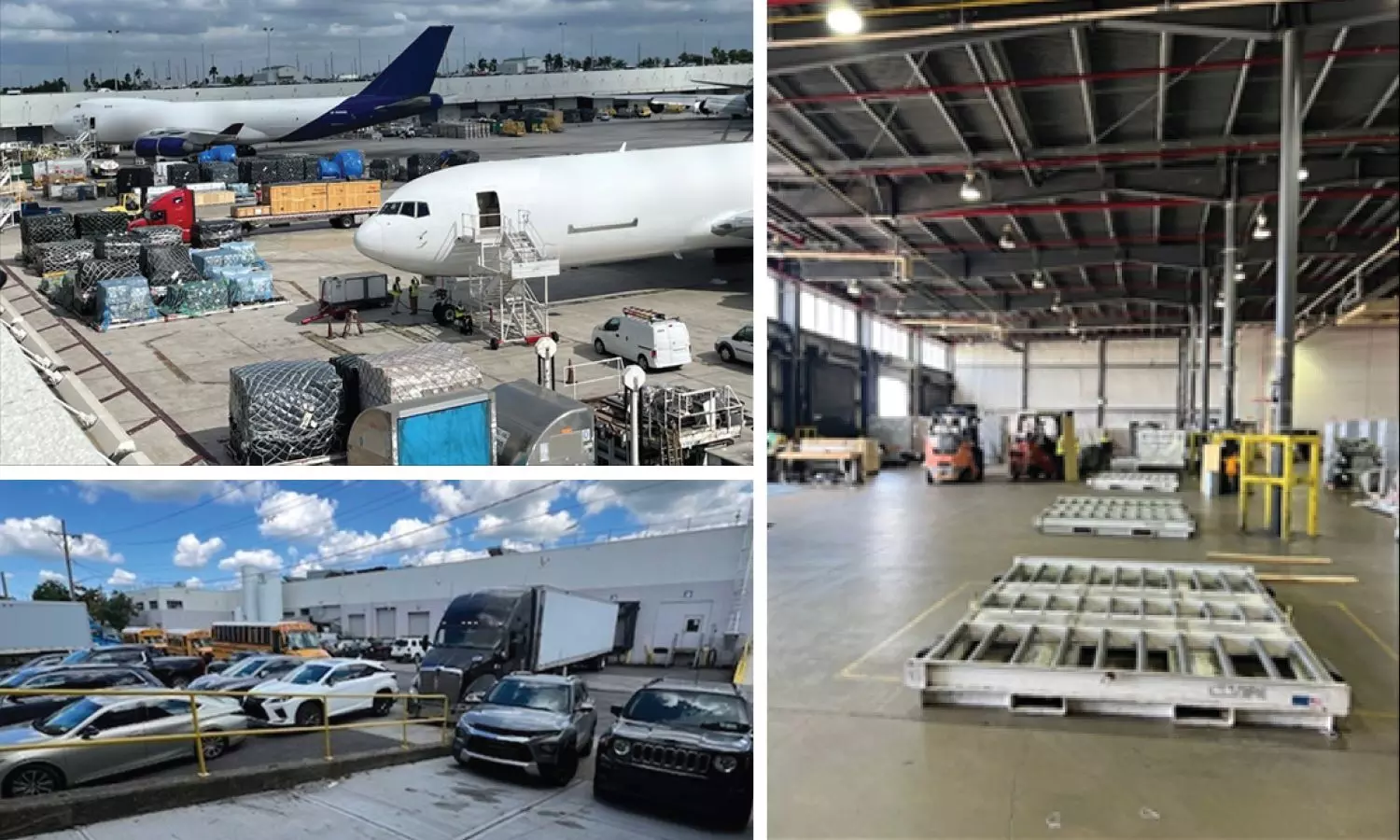
GAO flags air cargo infra gaps in US, urges DOT to address bottlenecks
While the Airforwarders Association (AfA) has welcomed the release, which validates concerns raised repeatedly with legislators, DOT responded that it will provide a detailed response to each recommendation within 180 days.

Source: GAO
The United States congressional watchdog, the Government Accountability Office (GAO) has raised red flags over the state of the country’s air cargo infrastructure and the Department of Transportation’s (DOT) response to longstanding challenges, warning that inefficiencies and safety risks at key airports could hamper the movement of critical goods like life-saving medicines, electronics, and fresh produce.
In a report released on Wednesday (July 23), the GAO noted that congested parking for cargo aircraft, ageing warehouses (some over 40 years old), and poorly configured roadways are straining US air cargo operations. These limitations have led to delays, safety concerns, and operational bottlenecks at major cargo hubs.
Layout challenges at an older air cargo warehouse. (L-R) Interior office space partially obstructs a dock door, and warehouse with columns in the middle makes manoeuvring forklifts difficult. (Source: GAO)
Despite being responsible for ensuring the safe and efficient movement of goods, the DOT has not fully assessed the reliability of its air cargo data or communicated with industry stakeholders to understand the full extent of on-the-ground issues, the watchdog agency found.
For example, GAO found that DOT's Freight Analysis Framework air cargo estimates were not sufficient to describe changes in air cargo value and commodities.
GAO recommendation reads, “The Secretary of Transportation should ensure that the Director of Bureau of Transportation Statistics (BTS) fully assesses the reliability of air cargo data in the Freight Analysis Framework and National Transportation Atlas Database and communicates the limitations of the data.”
Challenges that selected stakeholders reported with ground-based air cargo operations. (Source: GAO)
GAO is an independent, non-partisan agency that works for Congress. GAO examines how taxpayer dollars are spent and provides Congress and federal agencies with objective, non-partisan, fact-based information to help the government save money and work more efficiently.
The Airforwarders Association (AfA) has welcomed the release, “which validates concerns raised repeatedly by AfA with legislators about the knock-on effects of inadequate investment and maintenance in this area.”
"For years, we have highlighted the critical need for investment in our ground-based air cargo infrastructure. This report provides the irrefutable, government-backed evidence we need to drive real change and secure essential federal funding," said Brandon Fried, Executive Director of the Airforwarders Association.
"This GAO report is more than just an analysis; it's a critical tool that empowers the Airforwarders Association to intensify our efforts to seek dedicated Federal funding," said Fried.
"Our goal is clear: to reduce airport truck lines, modernise facilities, and ultimately lower operational costs for our members, ensuring a more efficient and resilient supply chain for all U.S. commerce."
Example of roadway congestion caused by a truck docking at an OffAirport warehouse. (Source: GAO)
The GAO’s findings stem from a detailed review that included interviews with 37 cargo stakeholders, including carriers and ground handlers, across 11 airports that together handle 38 percent of the nation’s air cargo volume. It also involved visits to 28 warehouses at nine airports.
“Stakeholders most frequently reported challenges associated with older warehouses, which slowed operations. GAO visited warehouses that were at least 40 years old at four of the nine airports GAO visited, and observed narrow or obstructed space, blocked doors, and low ceilings. Many stakeholders also reported that a lack of truck areas and poorly configured roadways slowed operations and led to safety hazards,” reads the report.
The GAO also aimed the DOT’s Office of Multimodal Freight Infrastructure and Policy, created in 2021 to reduce freight congestion, criticising it for not leveraging existing state freight plans or engaging directly with the air cargo sector.
GAO recommends, “The Secretary of Transportation should ensure that the Assistant Secretary for Multimodal Freight Infrastructure and Policy evaluates existing sources of information and routinely communicates with air cargo stakeholders, to identify challenges to the efficient movement of air cargo and determine whether the agency needs to take steps to help address the challenges.”
Challenges that selected stakeholders reported with ground-based air cargo infrastructure. (Source: GAO)
GAO launched its investigation after pandemic-related cargo congestion raised concerns about the resilience of U.S. air cargo infrastructure. While aviation is vital for moving high-value, time-sensitive goods like pharmaceuticals, GAO noted that air cargo depends heavily on ground infrastructure—warehouses, truck bays, and access roads—to function efficiently.
Anne Byrd, Assistant Secretary for Administration at DOT, in a response to Danielle Giese, Acting Director, GAO, on July 9, wrote that they will provide a detailed response to each recommendation within 180 days of the final report issuance.

